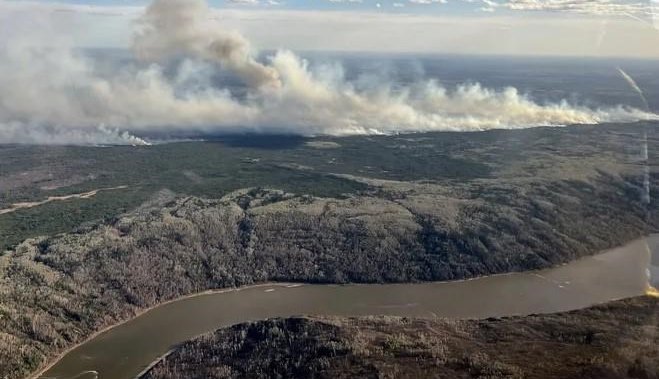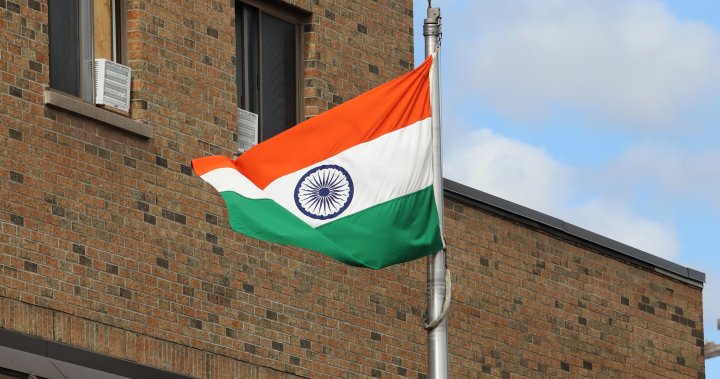Wildfires have prompted evacuation orders and alerts in western Canada just days after officials warned of “significant risk” from the natural hazard this summer.
A fire near Fort McMurray, Alta., has grown to 1,000 hectares Saturday, from around 200 hectares on Friday, and is listed as out-of-control.
The Alberta government said the wildfire danger is “extreme” and has issued an evacuation alert for Fort McMurray and Saprae Creek. Residents should be prepared to evacuate on short notice and keep essential items like medications, important documents and emergency kits ready to go.
A notice issued late Friday said strong winds were expected Saturday, and the wildfire was surveilled overnight by helicopters. The fire was about 25 kilometres southwest of Fort McMurray as of Friday evening.
An evacuation order was also issued for Grand Prarie County No. 1 on Friday evening due to a wildfire burning about four kilometres east of Teepee Creek that is moving away from the community. Evacuees were told to travel north and register at the Pomeroy Hotel and Conference Centre and to bring pets, important documents, medication, medical devices, food and water for at least seven days.

In British Columbia, the Northern Rockies Regional Municipality issued an evacuation order for the town of Fort Nelson as a wildfire poses a threat to human life. Evacuees are being told to head to the Fort St. John reception centre.
The email you need for the day’s
top news stories from Canada and around the world.
The BC Wildfire Service said the blaze discovered Friday afternoon was burning about 12 kilometres from the Highway 77 junction. By evening, the fire had grown to 800 hectares and was listed as “out of control” and “exhibiting extreme fire behaviour.”
Local conditions were challenging suppression efforts, according to the wildfire service. The fire is suspected to be human-caused. Ground crews and air support are battling the fire, including nine helicopters with buckets.
Fort Nelson Mayor Rob Fraser told Global News on Saturday that the town is “full of smoke.”
“Most people have left the community,” he said. “It’s pretty quiet here.”
He said the fire started when high winds knocked over a tree onto a power line northwest of the town. By the time fire crews arrived, the fire was several acres, he said, fuelled by the 70 km/h winds that blew the fire up to about 80 hectares in just a couple of hours.
“We felt the need to move the community as quickly as possible because this fire was growing so rapidly,” Fraser said.
He said the weather conditions are now favourable for tackling the fire.
Smoke has made its way to other populated areas, with Edmonton posting an air quality index of 10, or “high risk.”
The Northwest Territories was reporting six active wildfires as of Saturday, with more than 1,500 hectares affected. The largest fire, which is about 1,500 hectares, is some 70 kilometres from the community of Jean Marie River and is growing quickly.
The fire has reportedly knocked out 911 service for a large portion of the north.

B.C. that Canada needs to be more prepared and coordinated for wildfires this year.
Officials said the situation could worsen quickly given that much of Canada is still facing drought conditions that have persisted for the last 12 months.
© 2024 Global News, a division of Corus Entertainment Inc.





